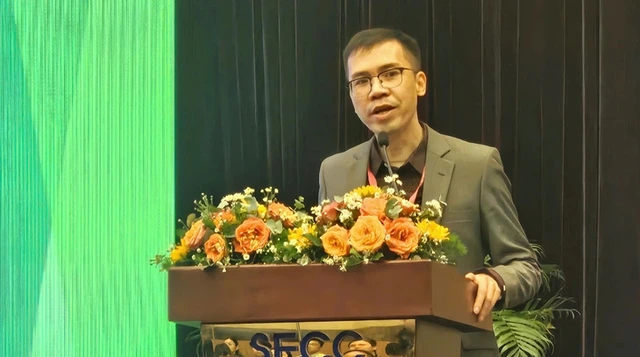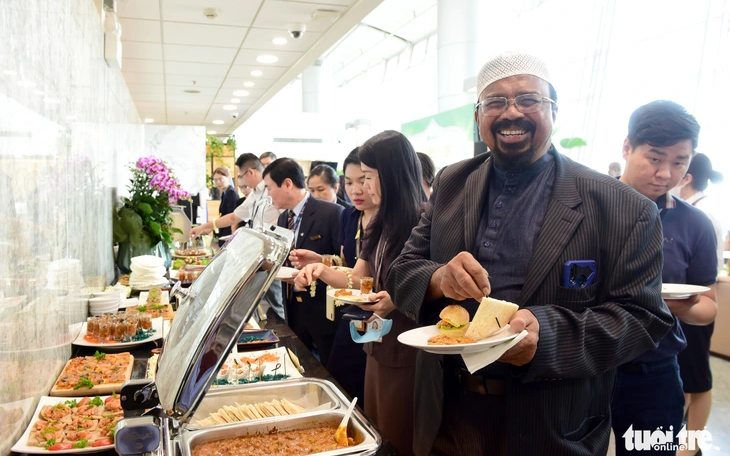
Pham The Cuong, trade counselor at the Vietnam Trade Office in Indonesia, speaks at a forum on export opportunities for Vietnamese products to halal markets in Ho Chi Minh City, September 5, 2025. Photo: Truong Linh
The event, titled 'Market trends and export opportunities for Vietnamese agricultural and processed food products to halal markets,' took place on Friday as part of the Vietnam International Sourcing Expo 2025.
It brought together specialists and business leaders to discuss strategies to expand exports and diversify markets for Vietnamese goods.
From the Middle East, Mohammed Alfawaz, chairman of Saudi Food Industry, noted that Vietnam has established a halal certification body, HALCERT, and is working toward mutual recognition with international partners.
With Saudi Arabia's halal market valued at around US$60 billion in 2024 and 85–95 percent of its food supply dependent on imports, demand for reliable halal-certified suppliers is immense.
Gulf states are also seeking to diversify their sourcing beyond Malaysia, Brazil, and India, opening new opportunities for Vietnam.
In this context, Vietnam's cost advantages and rich agricultural base strengthen its position as an attractive supplementary source for the global halal market, with long-term potential to develop into a hub bridging Asia and the Middle East, Alfawaz and other experts observed.
According to a global Islamic economy report, halal food spending is estimated to reach $47.7 trillion in 2025 and is expected to rise to $10 trillion by 2028.
This represents a 'promised land' for exporting countries, with Vietnam standing out thanks to its advantages in farm produce, seafood, and processed foods, experts said.
However, Ho Thi Quyen, deputy director of the Ho Chi Minh City Investment and Trade Promotion Center, said Vietnam still lacks internationally recognized halal certification bodies.
Certification remains fragmented, with little coordination among agencies, making it hard for businesses to meet the strict verification, quality control, and logistics requirements of Muslim-majority markets.
She also highlighted a shortage of professionals with expertise across the halal value chain, from production and processing to logistics, marketing, and distribution.
Pham The Cuong, trade counselor at the Vietnam Trade Office in Indonesia, noted that small- and medium-sized enterprises in agriculture and food processing face financial constraints, weak management capacity, and limited knowledge of halal standards, all hindering their ability to tap into this fast-growing sector.
Even so, he stressed that halal certification could serve as a 'golden passport,' giving Vietnamese products access to the two-billion-strong Muslim consumer base.
Cuong added that in Indonesia, where online shopping has become mainstream, certified products could gain traction through e-commerce, while working with local distributors remains the most effective path thanks to their import licenses and market know-how.



Max: 1500 characters
There are no comments yet. Be the first to comment.